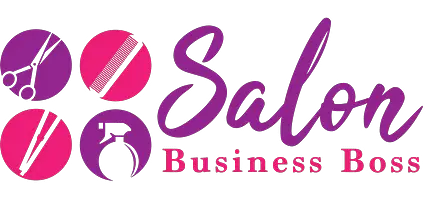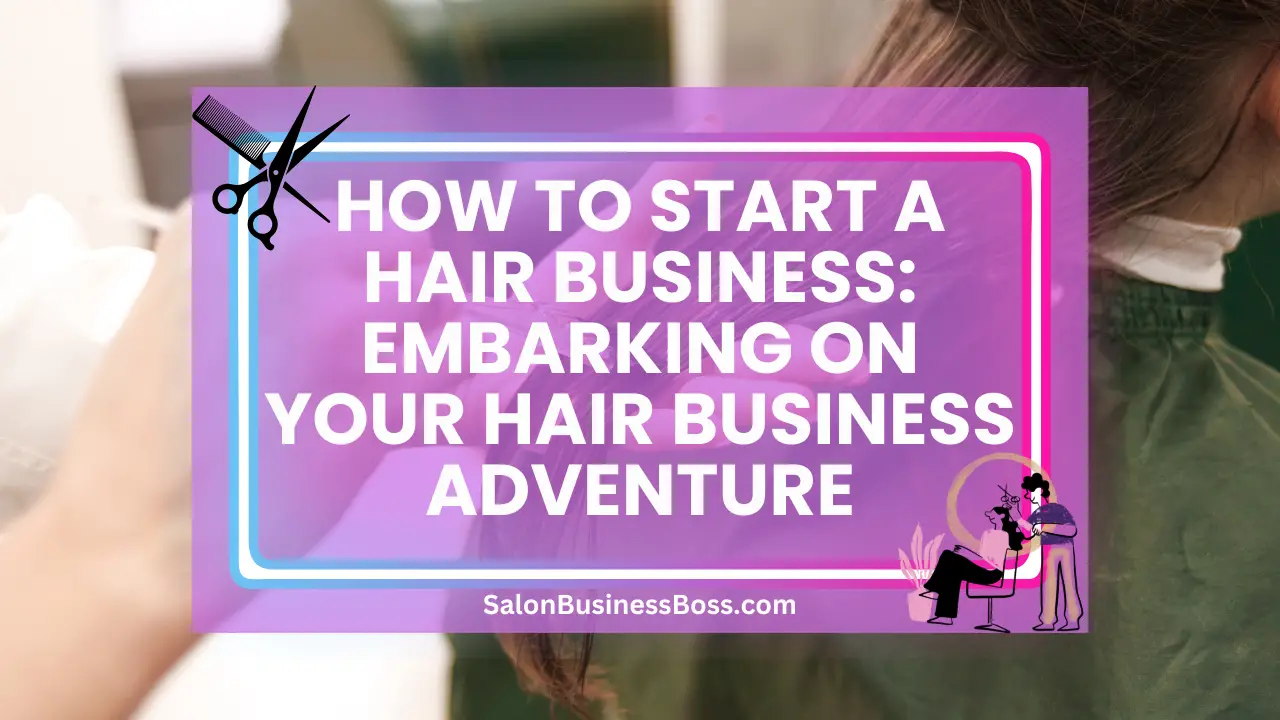Starting a hair business can be an exciting venture for individuals passionate about the beauty industry and eager to explore the lucrative market of hair products and services. However, establishing a successful hair business requires careful planning, market research, and a clear understanding of the industry.
To start a hair business, conduct market research to identify your niche and target audience. Create a comprehensive business plan, source high-quality products, and build a strong online presence. Implement effective marketing strategies and prioritize exceptional customer service for success in the competitive beauty industry. Adapt and innovate to meet evolving demands and build a reputable brand.
1. Market Research and Identifying Your Niche
Before venturing into the hair business, conducting thorough market research is paramount to laying a strong foundation for your venture. Market research involves gathering and analyzing data on the current trends, demands, and preferences of your target market. Understanding your potential customers’ needs and desires will enable you to tailor your products and services accordingly.
Researching your competitors is vital in identifying gaps in the market that you can fill. Analyze what other businesses are offering and identify areas where you can bring innovation or differentiation. This analysis will help you determine your unique selling proposition (USP), which sets your hair business apart from others in the industry. Whether it’s offering premium human hair extensions, catering to a specific hair type, or focusing on sustainable and eco-friendly products, your niche should align with your expertise and the desires of your target audience.
By defining your niche, you can develop a clear brand identity that resonates with your customers. A well-defined niche helps you position your business effectively and attract loyal customers who value what your brand stands for. It also helps you refine your marketing strategies and tailor your messaging to appeal directly to your target audience.
2. Create a Business Plan
A meticulously crafted business plan serves as a roadmap for your hair business’s success. It should outline your business goals, objectives, and strategies in detail. Begin with a thorough analysis of your target market, including demographics, buying behaviors, and market size. This information will inform your decisions on product development and marketing efforts.
Competitor insights are also crucial in a business plan. Understanding your competitors’ strengths and weaknesses allows you to identify areas of opportunity and potential threats. This knowledge helps you craft strategies that position your business advantageously in the market.
Financial projections are a fundamental part of the business plan. Estimate your initial investment, operating costs, and expected revenues. These projections will guide you in budgeting, pricing your products, and setting achievable sales targets.
A well-structured business plan becomes a valuable tool when seeking funding or partnerships. Whether you plan to self-fund your venture or seek external investors, a solid business plan showcases your seriousness and dedication to success.
3. Legal Considerations and Registration

Before officially launching your hair business, it is essential to address all legal considerations and ensure compliance with relevant regulations. The first step is to register your business name with the appropriate authorities. This registration helps protect your brand identity and prevents others from using a similar name that could create confusion among customers.
Additionally, depending on your location and the nature of your hair business, you may need to obtain specific permits or licenses. For instance, if you plan to operate a physical store or salon, you might need a business license or health permit. Research and understand the local and national regulations that apply to your business and fulfill all necessary requirements.
To safeguard your brand and intellectual property, consult with legal advisors to explore options for trademarks and copyrights. Trademarks protect your brand’s name, logo, and identity, while copyrights safeguard original content, such as website text and marketing materials. Taking these measures early on can prevent potential legal issues and protect your business from unauthorized use of your brand assets.
Complying with legal obligations not only ensures the smooth operation of your hair business but also builds trust with customers. It demonstrates professionalism and a commitment to operating ethically and responsibly. By proactively addressing legal considerations, you set a solid foundation for the future growth and success of your hair business.
Read more about: Budgeting for Brilliance: Hair Extension Business Startup
4. Source High-Quality Hair Products
The quality of your hair products is paramount in building a reputable and successful hair business. Establishing relationships with reliable suppliers or manufacturers is essential to ensure that you offer high-quality, authentic, and ethically sourced hair extensions, wigs, and related products.
Conduct thorough research to identify reputable suppliers with a track record of delivering quality products. Seek out suppliers who prioritize ethical sourcing practices, such as fair trade and sustainable production methods. Ethical sourcing not only benefits your brand’s image but also aligns with the increasing demand from consumers for socially responsible products.
Product testing is crucial to ensure that the hair extensions and related products meet the expectations of your target customers. Test for factors like durability, color accuracy, texture, and overall quality to guarantee customer satisfaction. Offering products that perform as promised will lead to positive customer experiences and foster loyalty.
Building a reputation for providing premium and authentic products will help instill confidence and trust in your clientele. Positive word-of-mouth and customer reviews can significantly impact the growth of your hair business. By prioritizing high-quality sourcing and product testing, you can differentiate yourself in a competitive market and create a loyal customer base that returns for repeat purchases.
5. Build an Engaging Online Presence
In the modern business landscape, establishing an engaging online presence is paramount for the success of your hair business. Begin by creating a visually appealing and user-friendly website that showcases your hair products and services. Ensure that your website is mobile-friendly to accommodate the increasing number of users accessing content through smartphones and tablets.
Search Engine Optimization (SEO) is vital to enhance your website’s visibility in search engine results. Conduct keyword research to identify relevant and high-traffic terms related to your hair business. Incorporate these keywords strategically into your website’s content, titles, and meta descriptions. Regularly update your website with fresh and informative content, such as blogs and articles, to keep visitors engaged and encourage return visits.
Engagement with your audience is key to building a loyal customer base. Utilize social media platforms like Instagram, Facebook, and Pinterest to showcase your hair products creatively. Post visually appealing images, videos, and customer testimonials to establish trust and credibility. Engage with your followers by responding to comments, messages, and inquiries promptly. Encourage user-generated content by running contests or featuring customer stories on your platforms.
Email marketing campaigns are effective for nurturing leads and driving sales. Offer valuable content and exclusive promotions to subscribers to encourage them to stay connected with your brand. Personalize your emails based on customer preferences and behaviors for a more tailored approach.
6. Implement Effective Marketing Strategies

Marketing plays a pivotal role in attracting customers and increasing sales for your hair business. A well-rounded marketing approach that combines digital strategies with traditional advertising is key to reaching a broader audience.
Collaborating with beauty influencers can amplify your brand’s reach and credibility. Partner with influencers who align with your target audience and have a significant following. Beauty influencers can promote your hair products through product reviews, demonstrations, and sponsored posts, leading to increased visibility and potential customer conversions.
Offering discounts, promotions, and loyalty programs incentivizes repeat business and fosters customer loyalty. Special deals and exclusive offers can encourage customers to make a purchase and revisit your store for future hair needs.
Participating in beauty events and expos provides valuable networking opportunities and exposure within the industry. Interacting with potential customers and industry professionals in person helps create lasting impressions and potential collaborations.
Read more about: How to Open a Tanning Salon: Strategies for Growth
7. Provide Exceptional Customer Service
Exceptional customer service is the cornerstone of a successful hair business. Train your staff to prioritize customer satisfaction by addressing inquiries and concerns promptly and professionally. Ensure that your team is knowledgeable about your products, as well as hair care tips and recommendations, to provide valuable guidance to customers.
Offering hassle-free return policies and efficient product exchanges builds trust and confidence in your brand. Clear and transparent policies show that you value your customers’ satisfaction and are committed to resolving any issues they may encounter.
Timely delivery of products is crucial for customer satisfaction. Partner with reliable shipping and delivery services to ensure that orders are dispatched promptly and reach customers on time. Provide order tracking options to keep customers informed about the status of their purchases.
Encourage customers to leave reviews and testimonials after their shopping experience. Positive feedback not only boosts your brand’s credibility but also serves as social proof for potential customers. Respond to customer reviews, whether positive or negative, in a professional and empathetic manner, demonstrating your commitment to improving your services based on customer feedback.
8. Monitor Business Performance and Adapt
Constantly monitoring your hair business’s performance is vital to making informed decisions and staying ahead in the industry. Analyze sales data to identify popular products, peak seasons, and sales trends. Understanding your customers’ preferences helps you optimize your inventory and marketing strategies.
Customer feedback is an invaluable resource for improving your business. Encourage customers to share their opinions through surveys, reviews, and feedback forms. Analyzing customer insights enables you to identify areas that need improvement and uncover new opportunities for growth.
Stay abreast of market trends and changes in the beauty industry. Keep an eye on competitors to understand their strategies and identify areas where you can differentiate yourself. Embrace innovative technologies, marketing techniques, and industry best practices to adapt to evolving customer demands and preferences.
Regularly assess your marketing strategies’ effectiveness and make necessary adjustments to optimize your campaigns. Invest in data analytics tools to measure the impact of your marketing efforts and allocate resources efficiently.
Conclusion
Starting a hair business requires dedication, careful planning, and a passion for providing top-quality hair products and services. By conducting thorough market research, identifying your niche, creating a solid business plan, and adopting effective marketing strategies, you can set your hair business on the path to success. Embrace innovation, stay customer-centric, and continuously adapt to meet the ever-changing demands of the beauty industry. With persistence and hard work, your hair business can thrive and become a well-respected brand in the market.
Frequently Asked Questions

1. Can I start a hair business from home?
Yes, starting from home is possible, but ensure compliance with local regulations and consider scalability as your business grows.
2. How much capital do I need to start a hair business?
The required capital varies depending on your business scale and product range. Plan for initial inventory, website development, marketing, and operational expenses.
3. Should I offer a variety of hair products or specialize in one type?
Both approaches can work, but starting with a focused product range can help you establish a strong brand identity and cater to a specific target audience.
To learn more on how to start you own salon checkout my startup documents here.
Please note that the contents of this blog are for informational and entertainment purposes only and should not be construed as legal advice. Any action taken based on the information provided in this blog is solely at your own risk. Additionally, all images used in this blog are generated under the CC0 license of Creative Commons, which means they are free to use for any purpose without attribution.

About the author. Entrepreneur and Salon Business Fan.
Hi! I am Shawn and I am a happy individual who happens to be an entrepreneur. I have owned several types of businesses in my life from a coffee shop to an import and export business to an online review business plus a few more and now I create online salon business resources for those interested in starting new ventures. It’s demanding work but I love it. I do it for those passionate about their business and their goals. That’s why when I meet a salon business owner, I see myself. I know how hard the struggle is to retain clients, find good employees and keep the business growing all while trying to stay competitive.
That’s why I created Salon Business Boss: I want to help salon business owners like you build a thriving business that brings you endless joy and supports your ideal lifestyle.


